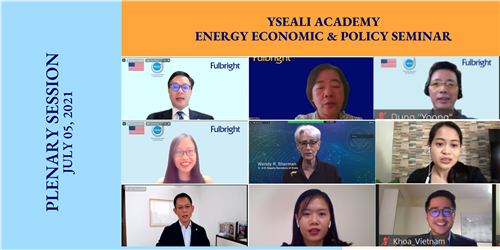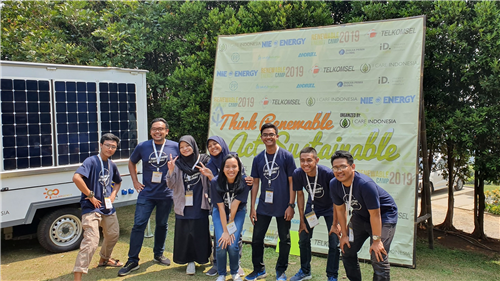As one of the youngest Energy Security Analysts at the National Energy Council in Jakarta, Indonesia, Nuzulia Fajriningrum is also one of the 25 YSEALI fellows selected to participate in the YSEALI Academy seminar on Energy Economics and Policy, which took place from July 05 to July 16, 2021. Recently, Fajriningrum sits down and shares with us her experience during the two-week intensive seminar, how it has marked an important milestone on her career trajectory towards the ultimate goal – to become a forefront energy analyst and to deliver impactful work on future energy planning in Indonesia.
An inseparable aspect of life
Nuzulia Fajriningrum graduated from the Bandung Institute of Technology, Indonesia, with a degree in Chemical Engineering in 2015. “When I was learning about the law of thermodynamics, I started to realize that energy is an inseparable aspect of our life. Anything that we’re working on, we’re working on it by converting energy,” she says. “The reality is that our development as a nation relies heavily on energy strategy. That’s why I became very much interested in the energy sector.”
Her position as an Energy Security Analysts at the National Energy Council (NEC) has seen the YSEALI Indonesian fellow on constructive assignments. She has been involved in developing Indonesian energy model in several projects, including NEXSTEP (National Expert SDG Tool for Energy Planning) with UN ESCAP (United Nations Economic and Social Commission for Asia and the Pacific), Balmorel with Danish Energy Agency, and CLEWs (Climate, Land, Energy, and Water system) with UN DESA (United Nations Department of Economic and Social Affairs) and UNDP (United Nations Development Programme).
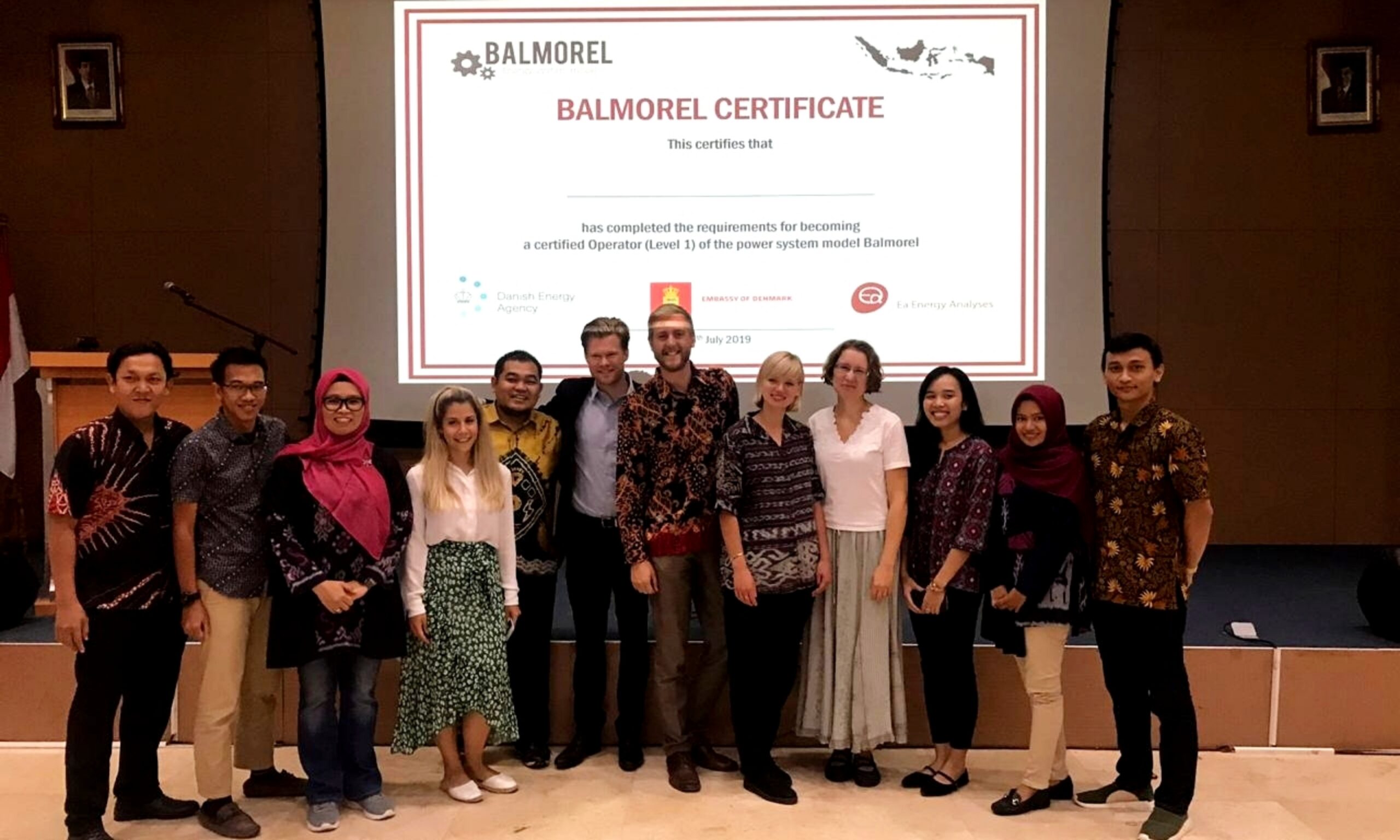
Nuzulia Fajriningrum (third from right) and her Modelling Team for Kalimantan Province in Balmorel Training by Danish Energy Agency.
Her extensive experience as a young government official has strengthened Fajriningrum’s belief in the interconnection between energy, economics, and policy. “I think understanding these three aspects and their relationship is extremely vital for me as a future policymaker,” she reflects. “The YSEALI seminar’s title, ‘Energy Economics and Policy’, immediately struck a chord with me. I wanted to gain more knowledge and insights on this specific topic and expand our regional and global coordination.”
Virtual but deeply inspired
The first of a series of three virtual seminars hosted by YSEALI Academy in 2021, the Energy Economics and Policy Seminar brought in a prominent cohort of scholars, industry experts across the globe and young professionals from Southeast Asia to confer on today’s most important and complex issues in energy development in the region. Despite being held online, Fajriningrum found the two-week program “exceed far beyond expectations.” The seminar was exceptionally pertinent to Fajriningrum as they addressed the issues that she will likely encounter in her work as an assistant of the Technical Advisors to the Ministry of Energy and Mineral Resources.
“For me, the most valuable aspect is to have discussions with other fellows and the renowned speakers, which always took unexpected turns and became very intriguing,” she says. “The seminar exposed me to a brand-new perspective and enriched my capacity on energy, economics, and policy. Not only did the lecturers share knowledge as leading experts in the energy sector, but they also gave clear explanations and practical approaches for us to thoroughly comprehend the topics.”
Fajriningrum was particularly inspired by a lecture delivered by Dr. Youngho Chang, Associate Professor and Head of Business and Management Minors at the School of Business, the Singapore University of Social Sciences, Singapore. Titled “Renewable and Nonrenewable Energy Consumption, Economic Growth, and Emissions”, it demonstrates the empirical relations between energy and economy, how the decision and policymaking in one sector affect the other, as well as policy selection and implementation when it comes to strategic issues such as energy efficiency or carbon management.
“I vividly remember, he managed to sum up in 20 minutes what I’ve been working on for the past three and a half years. It all made sense, all the dots were connected,” she smiles. Right at that moment, Fajriningrum envisioned herself pursuing higher education to support her goal of becoming an expert of energy planning and policy in the future. “I believe the seminar gave me a clearer idea on how I want to develop my career,” Fajriningrum continues. “Because of it, YSEALI has become one of the most important milestones in my career.”
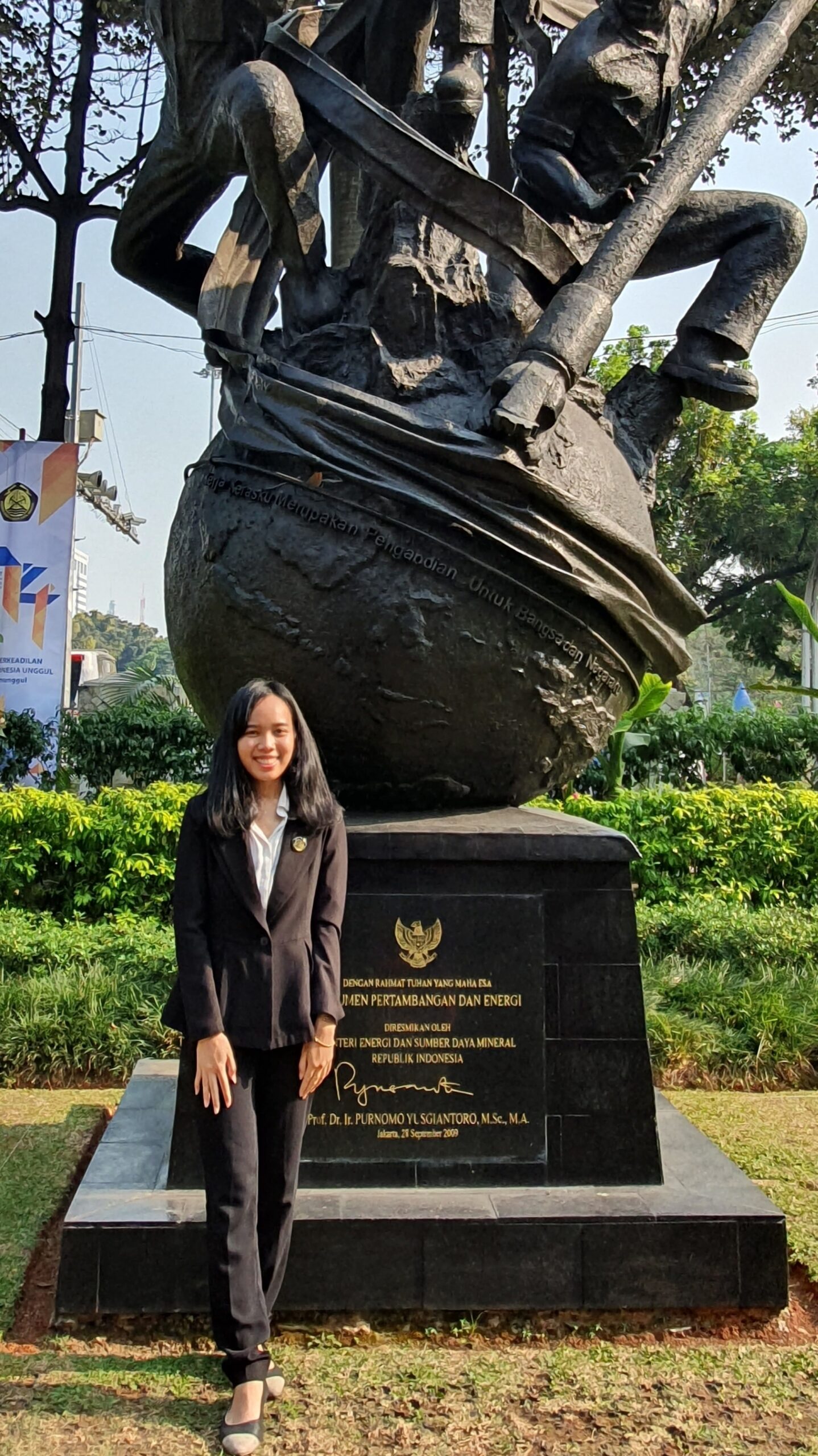
The young government official in front of the Mining & Energy Monument in the Ministry of Energy and Mineral Resources (MEMR) Office, Indonesia.
Intrigued to explore and grow
Aside from renowned lecturers and guest speakers, the Energy Economics and Policy Seminar also connected Fajriningrum to YSEALI fellows from her own country, Indonesia, alongside young professionals from Southeast Asia, who all share the same passion and vision of clean energy for the region despite coming from different backgrounds. “[The seminar] makes me feel like I’m not alone in this fight,” she says. “Although we only saw each other online, I’m thankful that I can find new friendships here!”
Fajriningrum still keeps in touch with her YSEALI fellows, with whom she often has discussions while they update each other on energy developments in their own countries. From her point of view, their exchange has helped Fajriningrum better understand the contexts of recent developments in the region, to compare and envision policies that she can formulate for the energy sector in Indonesia. For starters, she was able to consult with Singaporean fellows regarding carbon management strategy, as theirs was the first Southeast Asian nation to introduce a carbon tax in 2019. From her friends in the Philippines, who are also tackling similar geographical challenges as the archipelagic states, she has learned about their electricity scheme, how the country welcomes the private sector and its impacts on their energy policy.
“The pandemic has shifted our perspective on life and occupation,” she reflects. “It also sheds more light on the urgency of energy transition, as well as the importance of keeping air pollution low. I remember in Professor David Dapice’s lecture [Senior Economist, Vietnam and Myanmar Program, Harvard Kennedy School] from the seminar, he talked about how Southeast Asia is going to be impacted the most from the climate crisis, and how we have to make it our priority to transition to cleaner energy.”
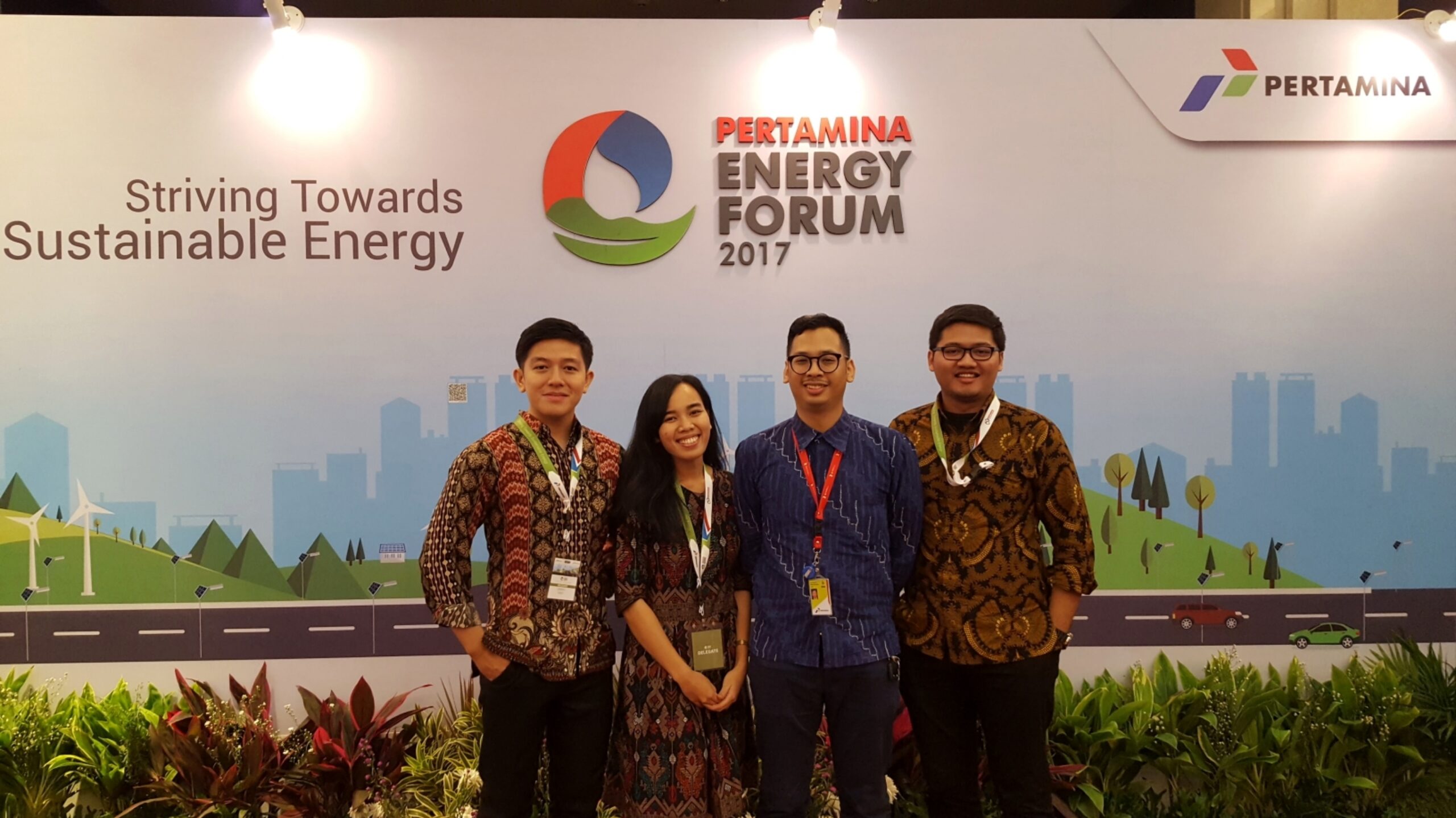
Fajriningrum (second from left) has been pursuing a career in the energy sector prior to participating in the YSEALI seminar.
Fajriningrum recognizes the great potential of her YSEALI fellows to combat those challenges, trusting that in several years or within the next decades, these young professionals will become leaders of their countries. The YSEALI 2021 seminar thus serves as a catalyst for the positive change that she hopes to see in her own country, Indonesia, and in Southeast Asia. The network established and maintained has kindled her confidence in future coordination between countries in the region towards a common goal. “I believe today is the day that I have to start on working this vision,” she concludes. “Energy should not be overlooked as merely a commodity. It should be the fuel that ignites and accelerates the elevating of living standards in our society. This means that governments should prepare sufficient and sustainable energy provision for supporting our economic, industrial, and infrastructure advancement throughout decades ahead.”
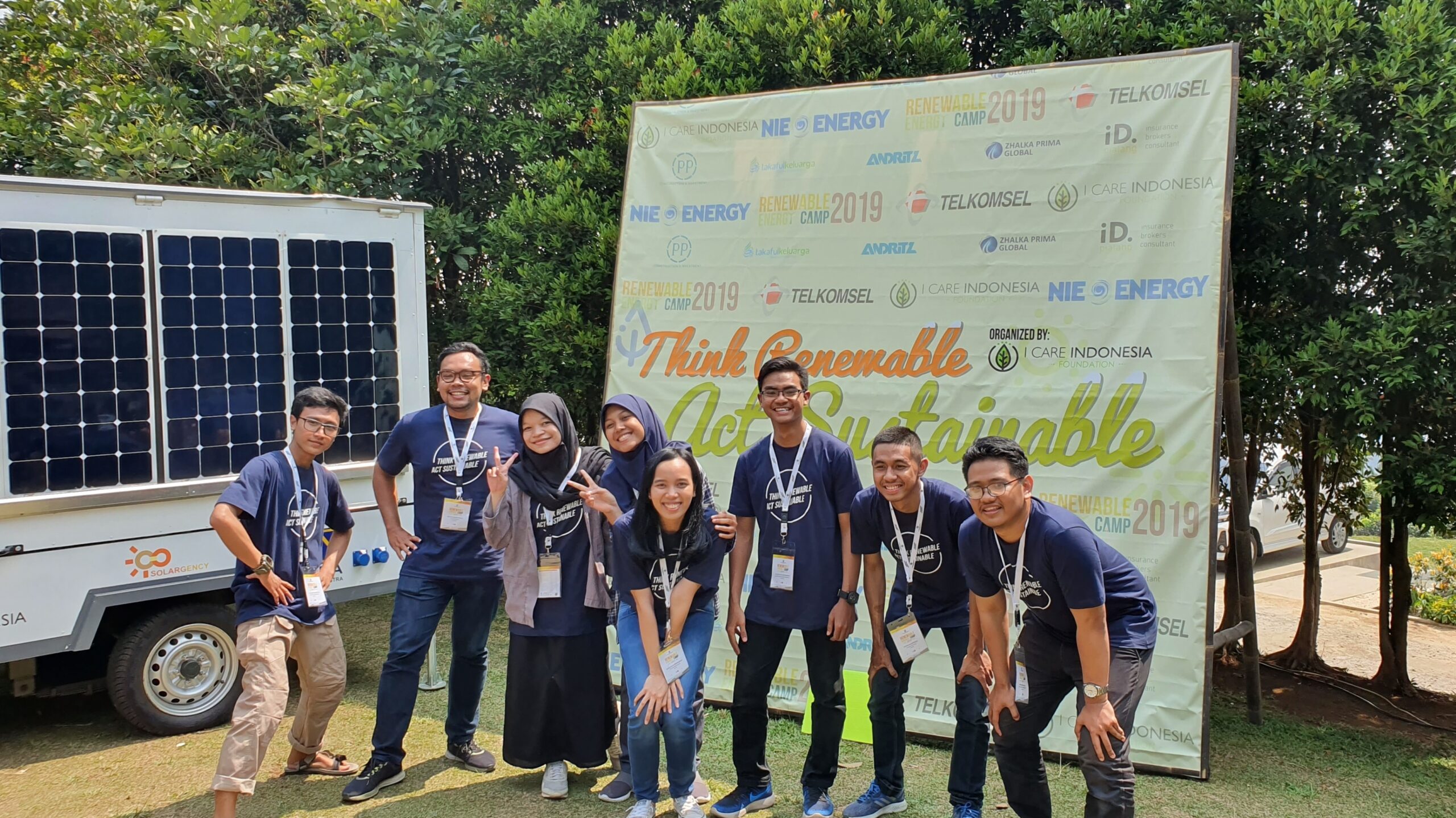
Fajriningrum (in the middle) and the Wind Energy Team at RE Camp by iCARE.
Bảo Quyên – Bảo Trâm
Related Articles

Dr. Le Thai Ha: when research sparks joy
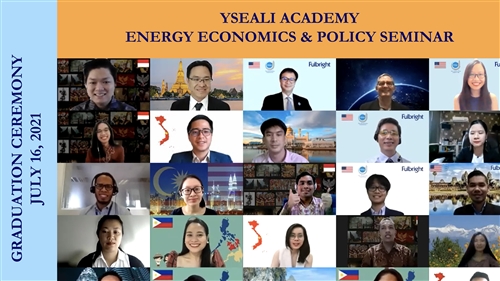
YSEALI Academy – A balance of reality and ideals
